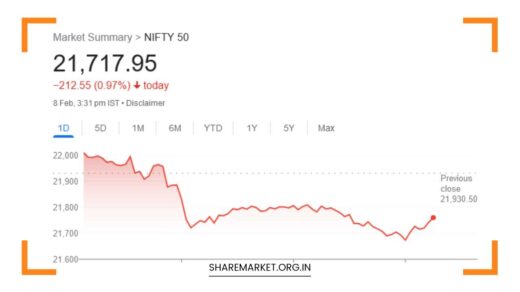Accenture’s Lowered Guidance Spells More Trouble for IT Sector

Accenture
The IT stocks experienced a downward trend today following the release of Accenture’s quarterly results. Accenture, a prominent IT services company, reported a significant decline of 22 percent in new orders during the third quarter. As a result, investors showed concern, leading to pressure on the IT sector as a whole.
Additionally, Accenture revised its earnings guidance for FY2023, reducing it by 1 percent. This downward adjustment further contributed to the negative sentiment surrounding IT stocks.
The company’s revenue for the third quarter, however, increased by 3 percent, reaching $16.6 billion compared to $16.2 billion in the previous period. Despite this growth, Accenture’s actual revenue fell within the projected range of $16.1-16.7 billion.
Accenture’s GAAP (Generally Accepted Accounting Principles) operating margin experienced a decline from 16.1 percent to 14.2 percent in the third quarter.
This decrease in operating margin indicates reduced profitability during the period. Simultaneously, the company’s operating margin dropped from 16.1 percent to 14.2 percent, highlighting a consistent decline in profitability.
Furthermore, Accenture’s small orders during Q3 fell short of expectations, which added to the overall concerns.
The utilization rate during this period stood at 91 percent, indicating a relatively high level of resource utilization within the company.
However, despite this, Accenture’s new bookings experienced a substantial decline of 22 percent, amounting to $17.2 billion in the third quarter.
These factors combined, including the decline in new orders, reduced earnings guidance, decreased operating margin, lower-than-expected small orders, and a significant drop in new bookings, contributed to the observed pressure on IT stocks following Accenture’s results announcement.
Accenture’s Guidelines
According to Accenture’s guidance on future prospects, the company expects its earnings growth in the fourth quarter to be in the range of 8-9 percent.
This represents a reduction in the earnings growth guidance for the second time, as it was previously projected to be in the range of 8-10 percent. The revised guidance indicates a slightly lower anticipated growth rate for the company.
In terms of revenue, Accenture forecasts that its fourth-quarter revenue will be between $15.75 billion and $16.35 billion.
This is a revision from the previous guidance of $16.56 billion provided in May. The updated revenue guidance suggests a slightly lower expected revenue range for the fourth quarter.
Accenture has also stated that the demand for IT services in the United States is expected to remain weak. This assessment suggests that the company foresees challenges and potential limitations in the US market for IT services.
Furthermore, Accenture reported a decline of 22 percent in new deals during the third quarter compared to the previous quarter, amounting to $17.2 billion.
This decline in new deals indicates a decrease in the value of contracts secured by the company during that period.
Overall, Accenture’s revised earnings growth guidance, adjusted revenue forecast, expectation of weak IT services demand in the US, and the decline in new deals contribute to the company’s outlook and provide insights into its future prospects.
A Record $22.1 Billion in New Orders Were Received in the Second Quarter
Accenture reported a remarkable achievement in the second quarter, as it received a record-breaking $22.1 billion in new orders.
This influx of new orders signifies a strong demand for the company’s services and reflects the confidence clients have in Accenture’s capabilities.
However, Accenture has acknowledged that clients are encountering increasing challenges in managing small projects.
This suggests that there may be complexities or difficulties arising in executing and delivering results for smaller-scale initiatives. The company is likely addressing these issues and working on strategies to overcome them in order to better support its clients.
In response to evolving market conditions and business needs, Accenture implemented a reduction in its workforce. During the last quarter, the company downsized by 6,000 employees.
Looking ahead, Accenture has announced plans to lay off a significant number of employees, with a projected reduction of 19,000 positions over the next 18 months. This reduction represents approximately 2.5 percent of the company’s total workforce.
The decision to downsize the workforce is a strategic move by Accenture to adapt to changing industry dynamics, optimize operational efficiency, and align its resources with current and future business demands.
Workforce adjustments are common in organizations as they strive to maintain competitiveness, streamline operations, and navigate economic fluctuations.
By reducing its workforce, Accenture aims to create a leaner and more agile organization, enabling it to deliver services more effectively and efficiently.
While the layoff numbers may seem substantial, they reflect the company’s proactive approach to adjust its workforce in response to market conditions and optimize its overall performance.
It is worth noting that downsizing decisions are typically made after careful evaluation and consideration of various factors, including business priorities, financial performance, and the need for organizational restructuring.
Accenture’s actions reflect its commitment to sustaining long-term growth, enhancing competitiveness, and ensuring the company’s continued success in the ever-evolving IT services landscape.
JP Morgan’s Opinion on IT Sector
According to JP Morgan, there are indications of a slowing business trend based on Accenture’s guidance. The fact that Accenture has reduced its guidance not only for the fourth quarter but also for the entire fiscal year 2023 suggests a cautious outlook.
This adjustment in guidance implies that Accenture foresees challenges and potential limitations in its business performance in the near term.
Furthermore, JP Morgan notes that there is no indication of any recovery expected for Accenture’s business until the end of the year, which further underscores the cautious sentiment.
JP Morgan also suggests that the second quarter may continue to be weak for Indian IT companies. The weakness in the IT sector is attributed to factors such as reduced demand and challenges faced by the industry.
In particular, weakness in the American market is highlighted as a negative factor impacting Indian IT companies.
As the American market is a significant source of business for Indian IT firms, any weakness or slowdown in that region can have a notable impact on their performance.
Moreover, JP Morgan points out that weakness in the Communications, Media, and Technology (CMT) sector has had a negative impact on companies such as Tech Mahindra (Tech Mah), Larsen & Toubro Infotech (LTIM), and Persistent Systems. These companies operate in the CMT domain and may face challenges due to the weakness in this sector.
Given these factors, JP Morgan maintains a negative outlook on the IT sector. Their assessment suggests that the IT industry, both globally and specifically in India, may experience continued difficulties and uncertainties.
The negative outlook reflects the prevailing concerns and challenges faced by the sector, including the impact of reduced guidance, weakness in the American market, and sector-specific weaknesses.
It is important to note that market assessments and opinions, such as those expressed by JP Morgan, are subjective and based on their analysis of available information and market conditions.
They provide insights into investor sentiment and expectations but should not be considered as absolute predictions of future events.
Morgan Stanley’s View on IT
According to Morgan Stanley, Accenture’s order growth experienced a slowdown during the third quarter. This deceleration in order growth raises concerns within the IT sector, as it suggests potential challenges or limitations in securing new projects and contracts.
The slowdown specifically observed in small projects adds to these concerns, as small-scale initiatives play a significant role in the overall portfolio of IT companies.
Morgan Stanley maintains a cautious outlook on the IT sector for the first half of FY2024. This cautious stance indicates that the investment bank anticipates ongoing challenges and potential headwinds that could impact the performance of IT companies in the coming months.
The cautious outlook may be based on various factors, including macroeconomic conditions, market trends, and specific industry dynamics.
Additionally, Morgan Stanley suggests that there is a possibility of further decline in IT stocks. This implies that the investment bank believes that the current negative sentiment surrounding IT stocks may persist or even worsen in the near term.
The possibility of further decline in IT stocks could be influenced by factors such as market volatility, sector-specific challenges, and investor sentiment.
It is important to note that Morgan Stanley’s view on the IT sector, like any financial institution’s assessment, represents an analysis of available information and market conditions.
Their opinions and forecasts are subjective and subject to change based on evolving circumstances. Investors and market participants should consider multiple perspectives and conduct their own research before making investment decisions.
Nomura’s Opinion on IT Sector
According to Nomura, there are no apparent indications of a demand recovery at Accenture, one of the leading companies in the IT sector.
The fact that Accenture has revised its earnings growth guidance for the second time suggests ongoing challenges and potential limitations in their business performance.
This lack of demand recovery and downward adjustment in guidance contribute to the cautious sentiment surrounding the IT sector.
Nomura advises maintaining a cautious outlook on the IT sector as a whole. This cautious stance indicates that Nomura believes there are potential risks and uncertainties that could impact the performance of IT companies in the foreseeable future.
The caution may stem from various factors, including macroeconomic conditions, industry dynamics, and specific challenges faced by the sector.
Despite the overall cautious outlook, Nomura has Buy recommendations specifically on Tech Mahindra and Coforge.
This suggests that Nomura considers these particular companies to have favorable prospects or potential for growth within the IT sector.
The Buy recommendations may be based on a variety of factors, including company-specific strengths, market positioning, and growth potential.
It is important to note that Nomura’s opinion represents their analysis and assessment of the IT sector and specific companies within it. However, market conditions and factors can change rapidly, and investors should conduct their own research and consider multiple viewpoints before making investment decisions.
Jefferies Opinion on IT Sector
According to Jefferies, there has been a decrease in demand from clients within the IT sector. This suggests that clients are showing reduced interest or willingness to engage in IT projects or services.
The decrease in demand can be indicative of various factors, such as economic uncertainties, budget constraints, or shifting priorities within client organizations.
Furthermore, Jefferies notes a continued reduction in discretionary IT spending. Discretionary spending refers to expenditures on non-essential or optional IT projects or investments.
The reduction in discretionary spending implies that clients are focusing more on essential or critical IT initiatives and are cutting back on non-essential expenditures.
This shift in spending patterns can impact the growth prospects and revenue generation of IT companies.
Jefferies also highlights that the results for the first quarter of the financial year 2023 fell below expectations.
This underperformance in the first quarter may suggest challenges or weaker-than-anticipated performance across the IT sector. It indicates that the industry is facing headwinds and may be struggling to meet growth expectations.
As a result, Jefferies has reduced the growth estimate for FY24 by 0.5-1.5 percent. This downward revision indicates a more cautious outlook on the expected growth rate of the IT sector for the specified period.
Jefferies anticipates a slower pace of growth or a more challenging business environment than previously estimated.
Moreover, Jefferies suggests that earnings per share (EPS) in FY2024-26 are likely to be lower than estimated. This indicates that the profitability of IT companies may be impacted, resulting in lower earnings than initially projected.
The lower EPS estimates reflect the potential challenges and uncertainties faced by the sector.
Jefferies observes that there are few signs of demand recovery in the second half of FY2024. This lack of demand recovery implies a prolonged period of subdued or weak demand in the IT sector.
The absence of signs for improvement in demand indicates that the challenges and constraints affecting the industry are expected to persist for the specified timeframe.
Lastly, Jefferies notes that the price-to-earnings ratio (PE) of IT stocks is at risk of de-rating due to the lack of demand.
A de-rating refers to a potential decline or contraction in the valuation multiples of stocks. The lack of demand can negatively impact investor sentiment, leading to a potential reduction in the PE ratio of IT stocks.
Overall, Jefferies’ opinion on the IT sector highlights the challenges and concerns faced by the industry, including decreased demand, reduction in discretionary spending, underperformance in quarterly results, lower growth estimates, potentially lower EPS, and the risk of de-rating.
These factors indicate a more cautious and challenging business environment for the IT sector as a whole.
Disclaimer: The opinions expressed on sharemarket.org.in are the personal views of the experts. The website and its management hold no responsibility for the expressed opinions. We strongly recommend users to seek certified expert advice before making any investment decisions.

















